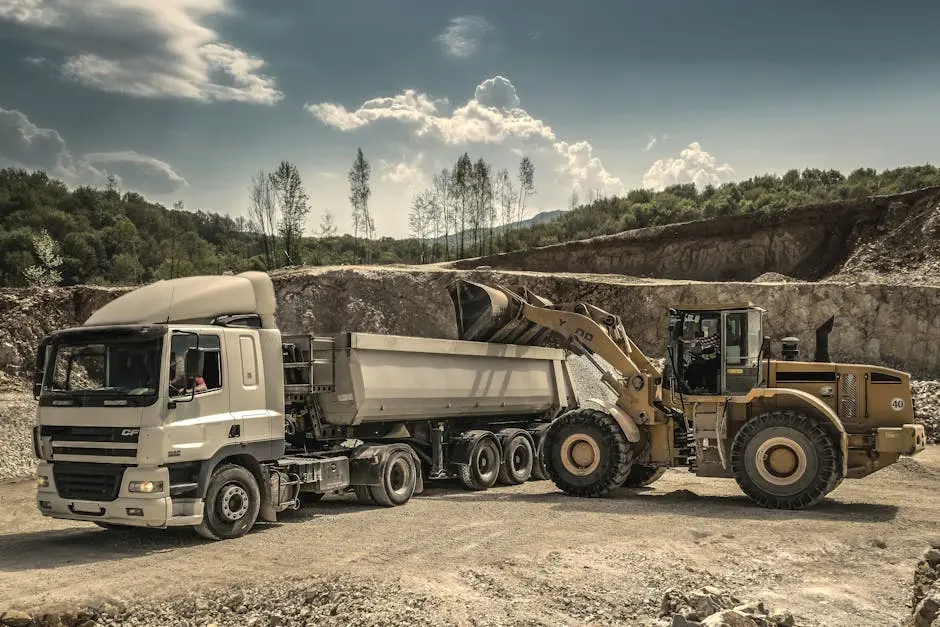In the ever-evolving world of commercial projects, making smart and cost-effective choices can make all the difference. One of the key decisions contractors and project managers face is whether to purchase equipment or opt for equipment rental. Here, we’ll explore why renting equipment is often the superior choice for commercial ventures, breaking down the benefits in a friendly, conversational manner.
1. Cost Savings and Budget Management
Managing a budget effectively is crucial in any commercial project. Equipment rental allows you to allocate funds more efficiently by avoiding the massive upfront costs associated with purchasing. This financial flexibility ensures you can invest capital where it’s most needed, such as labor or high-quality materials, instead of tying it up in expensive machinery. Businesses that choose to rent often find their financial resources are more fluid and adaptable, as rental agreements tend to offer varying terms that can be adjusted as project scopes evolve.
Additionally, renting equipment mitigates the risk associated with large financial commitments. Instead of allocating substantial resources towards buying equipment that may only be useful for a single project or a short duration, businesses can channel their funds into other critical areas. Understanding the advantages of heavy equipment rentals can provide the extra financial breathing room needed to tackle unforeseen challenges or opportunities. This adaptability in financial planning ultimately supports better budget management.
2. Enhanced Flexibility and Scalability
Commercial projects can be unpredictable. Renting equipment provides the flexibility to scale up or down based on the project’s requirements, helping you adapt to changing demands without being locked into long-term commitments. For instance, if a project suddenly requires additional machinery, rental services can provide the necessary equipment swiftly, preventing delays and maintaining productivity levels.
Moreover, renting allows businesses to pivot their project strategies without being tethered to equipment that may no longer meet their needs. Such flexibility is vital in industries where project needs can change rapidly due to seasonal demands or unexpected work scope changes. By leveraging equipment rental, companies gain the ability to quickly meet new challenges without the worry of machinery sitting idle or needing costly upgrades to keep pace with technological advancements.
3. Access to the Latest Technology
Staying ahead of the curve in technology is a surefire way to enhance the effectiveness of your projects. Renting allows you to use the most current and advanced equipment available on the market, ensuring that your projects benefit from enhanced precision and efficiency. This is especially important in industries where technology can rapidly change the standard of work expected.
Many rental companies update their inventory frequently, allowing you access to equipment underpinned by the latest technological innovations without the financial burden of constant purchases. Whether it’s advanced safety features or software-enhanced capabilities, renting offers a cost-effective way to integrate such advancements into your operations, effectively leveling the playing field with competitors who might have larger capital investments in their fleets.
4. Reduced Maintenance and Repair Costs
Owning equipment comes with the responsibility of maintenance and repair costs. These can add up quickly, not only consuming a significant part of your budget but also requiring time and effort to manage effectively. By opting for rental, these expenses are generally managed by the rental company, freeing you from additional financial strain and operational headaches. Plus, the equipment you rent is often kept in prime condition, as rental services have a vested interest in maintaining their offerings to high standards.
In essence, when you rent, you’re leveraging the expertise of rental providers who routinely manage the upkeep and service schedules of their equipment. This not only reduces costs but also minimizes the risk of unexpected breakdowns that could delay your project timelines. It allows you to focus your efforts on the project itself rather than the logistics of maintaining a fleet of machinery.
5. Expert Support and Training
Rental companies often provide expert support and training services, ensuring your team utilizes the equipment efficiently and safely. This guidance is invaluable, particularly for operators who might not be familiar with the latest models or specific machinery. With access to skilled advice at your fingertips, you can address operation queries in real-time, minimizing the learning curve and maximizing uptime.
The importance of well-informed personnel cannot be overstated, as proper usage and understanding of equipment can significantly enhance productivity and reduce safety incidents. Some rental services offer comprehensive initial training sessions when new equipment is leased, coupled with ongoing support throughout the rental period. This layer of professional backing empowers your team to confidently tackle even complex tasks, ensuring your project’s success.
6. Risk Management and Asset Disposal
Dealing with asset depreciation and disposal can be a hassle that not only includes financial drawbacks but also significant amounts of time and management. Renting equipment shifts this responsibility to the rental provider, which helps mitigate risks concerning these depreciative elements. When you’re done using a piece of rented equipment, the simple process of returning it to the provider eliminates the worry of future disposal.
7. Improved Cash Flow
Efficient cash flow is vital for any business. Equipment rental ensures a steady cash flow by converting what would be fixed expenses into easily manageable variable costs, allowing for more straightforward management of other essential financial obligations. Without needing to lock down large amounts of capital in equipment, your business enjoys greater liquidity, enabling more dynamic financial planning and project execution.
8. Environmental and Space Considerations
With an increasing emphasis on sustainability, renting helps reduce your environmental footprint by promoting the shared use of resources. This approach is being increasingly recognized as an environmentally responsible choice, reducing the demand for manufacturing new equipment while optimizing the use of existing machines. Additionally, it addresses the often-overlooked issue of storage. Without the need to store large equipment when it’s not in use, businesses can save on space-related costs, including rental or maintenance of storage facilities.

